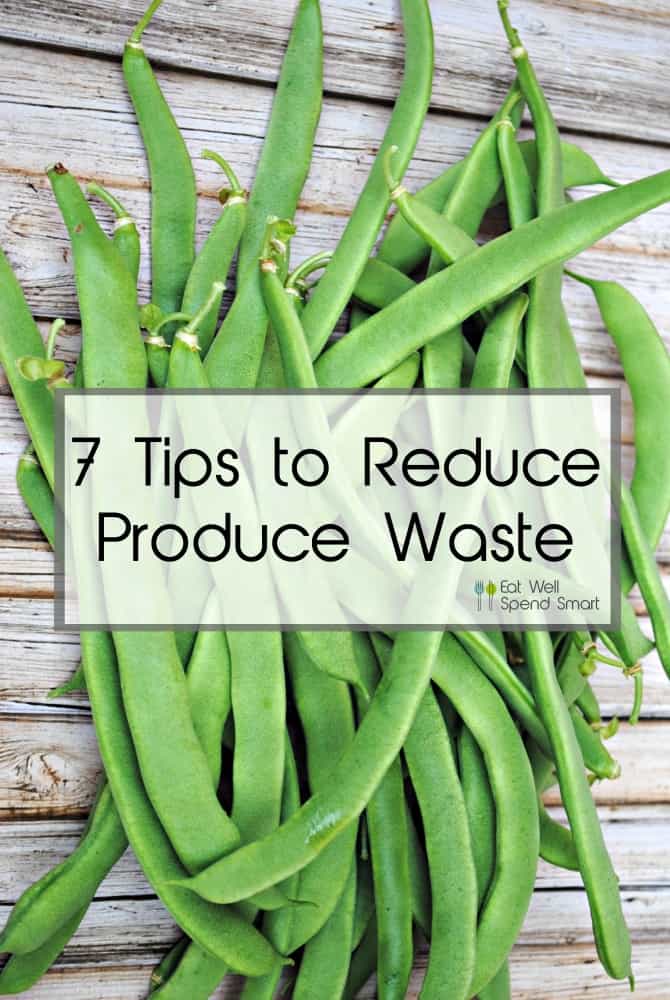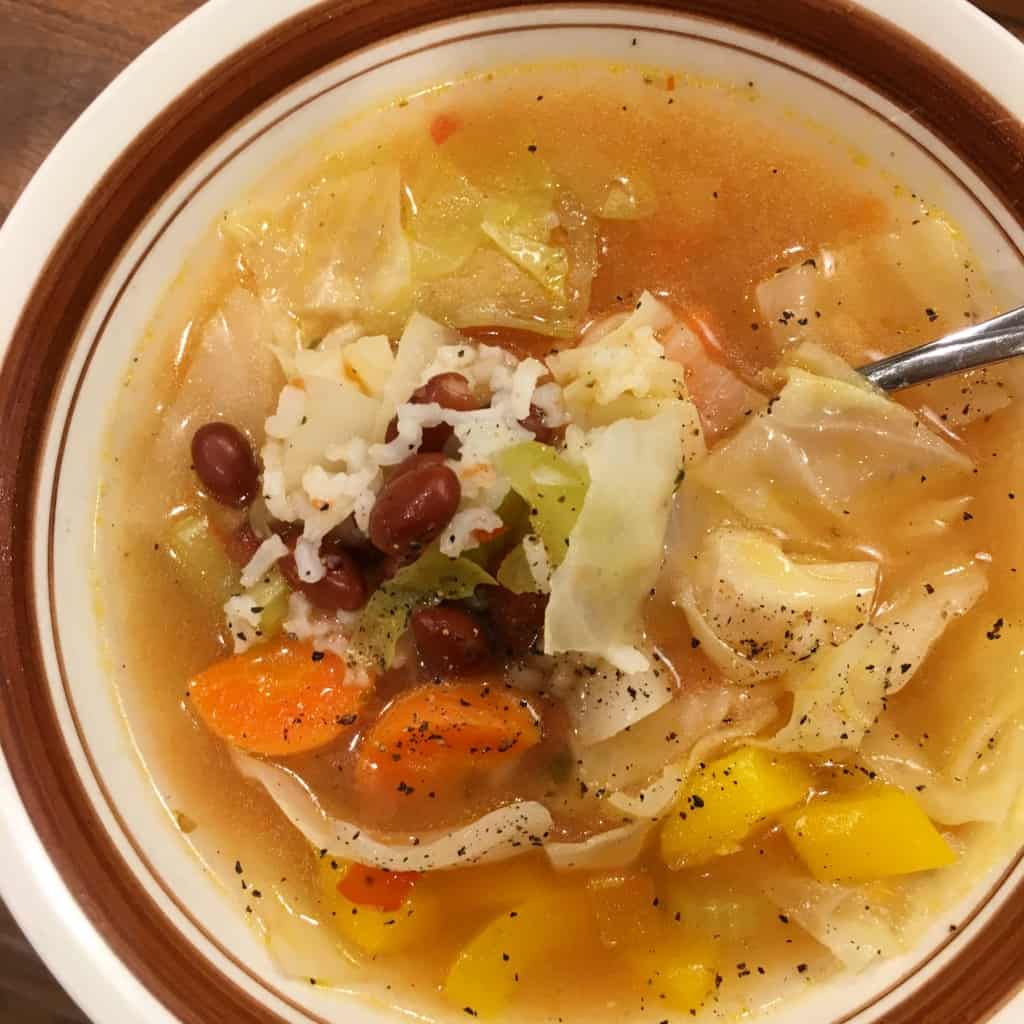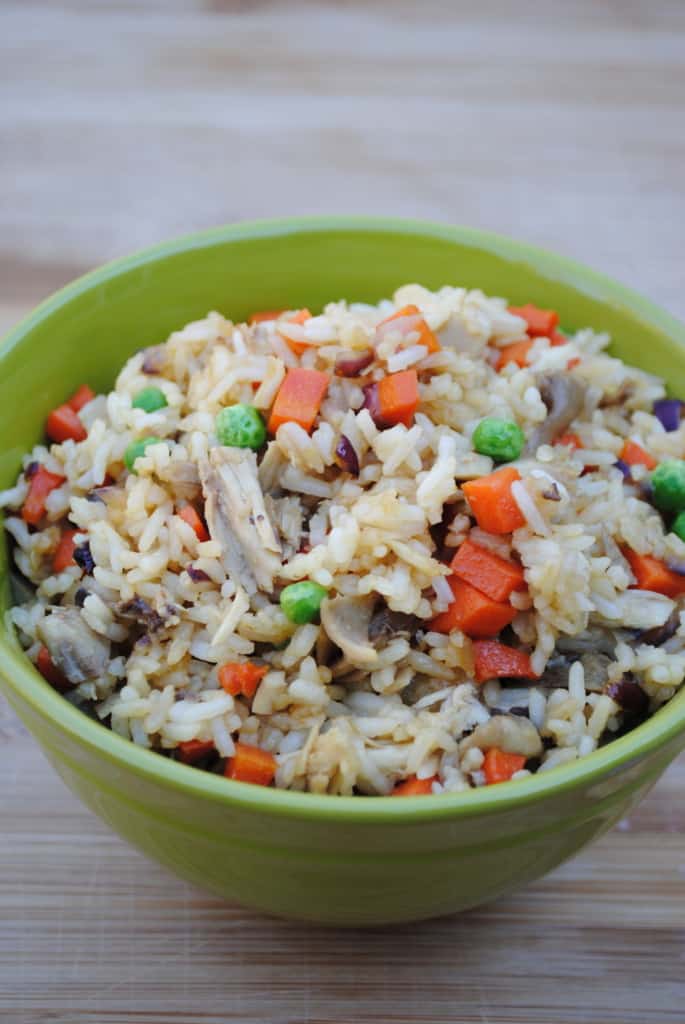Links used in this post are affiliate links. I may receive compensation if you purchase through one of these links.
It's a familiar scene. You have good intentions of eating well all week long, so the shopping cart gets loaded with an abundance of vegetables and fruit. You start out strong in the week with salads and an apple for a snack, but by the end of the week, you open your produce drawer only to discover that you have a ton of greens and veggies dying a slow death.
We're not going to do that anymore! We are going to be smart spenders and reduce produce waste once and for all. Are you with me? Here are my best tips for keeping your hard earned money out of the trash.
7 Tips to Reduce Produce Waste
Plan double duty
I've talked many times about using a whole chicken or a roast over multiple meals, but the same thing goes for our produce. My family can't eat an entire cabbage in one sitting, so if I buy a cabbage for a side dish, I know I need to plan another meal to use the rest of it later in the week like in my beef and cabbage skillet. If I don't, you can guarantee the cabbage will not get used and will end up wasted. A little planning goes a long way in planning double duty for our veggies.
Buy only what you need
Again, this goes back to planning, but don't get sucked into the trap of over-buying and then wasting. I always have my staple vegetables on hand (carrots, white and sweet potatoes, onions, greens, and celery) and then beyond that I choose just a few extras that I will be using that week in meals like Brussels sprouts, cabbage, green beans, peppers, cauliflower, broccoli, squashes, etc. Make sure you have a plan for what you are buying. The exception is the longer lasting veggies like potatoes, onions, carrots, etc. They can last several weeks and are versatile enough they can be used for many meals.
Use in the right order
Knowing which produce items go bad quickly helps me prioritize when to use what. Root vegetables can last a lot longer than salad greens. I buy a huge bag of carrots because they will last several weeks in the fridge, while I tend to buy smaller portions of peppers, cucumbers, and greens. Using the veggies that spoil faster in the beginning of the week while leaning on longer lasting vegetables and frozen later in the week is a great way to reduce the chances of wasting your while still keeping your produce intake up.
Make a garbage meal
At the end of the week I will often make a "garbage meal" meaning I will use little bits of food that needs to be kept out of the garbage and make it into something delicious. Soup is a great way to do this. Leftover meat or a can of beans combined with a nutritious broth, random veggies, and an optional grain is saved from your trash can and turned into a wholesome dinner. Stir fry and casseroles are another good way to use this method. Whatever needs to be cleaned out of the fridge gets tossed in. Of course don't use actual spoiled food though.
Extend life with a produce keeper
If you are still finding that some of your produce just goes bad too quickly no matter what you try, you might benefit from a produce keeper. They are specially designed to slow down the aging process by absorbing ethylene gas and also promoting airflow on all sides of the container. They come in different sizes and can be used again and again. They are an investment but worth it if it saves you from throwing away food every week.
Freeze
You can always freeze food that you don't think you are going to get to in that week. Individual items like chopped peppers and onions, or berries can be frozen or you can go ahead and use any vegetables that you need to use up in a soup or casserole and freeze the whole meal to eat later. It's best to freeze the produce while it is still very fresh for best results. An exception would be bananas, because I often freeze over ripe bananas for banana bread.
Compost
If worse comes to worse, consider starting a compost bin. Scraps and peels from produce, egg shells, coffee grinds, paper, leaves, etc can be composted to add vital nutrients to soil for any kind of garden. We have had great success with our compost bin and I feel good knowing that even if I didn't plan well, produce scraps can still be used to feed the ground for our spring and summer garden.
What about you? How do you save your money by keeping produce out of the trash?






Leave a Reply